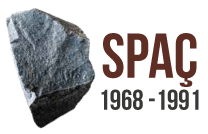History
The Spaç Revolt
In this prison-camp was recorded the largest revolt in the history of the prisons and labour camps of the Albanian communist regime, against the violence and terror that was exercised against prisoners. The Spaç Revolt constitutes a culminating point in the history of anti-communist resistance, but also of the movement for freedom and democracy. The causes of the outbreak of the revolt reflected the inhuman conditions, enslaving labour, physical and psychological tortures with which prisoners were confronted. From the exploitation of forced labour that political prisoners carried out in the mine, the state ensured very high revenues, because the minerals extracted in Spaç supplied plants and factories in the country, or were sold or exchanged through clearing with various states, mainly of Eastern Europe. Dissatisfaction would increase among them from heavy and unpaid labour, from disregard of human rights, from poor living conditions, food in small quantities, from continuous violence.
Day 1
21 May 1973
Time 05:00
Isolation Cell
The convict Pal Gjergj Zefi, born in 1940, from Rrushkull of Durrës, sentenced to 10 years of imprisonment for agitation and propaganda, who had been punished by the command with one month of serving sentence in the isolation rooms, because he had seriously violated the rules established in the unit—at the time when the non-commissioned officer of the guard opened the door in one of the isolation rooms and attempted to take the blanket, Pal Zefi would leave, going toward the zone where the other prisoners were staying. When it was ascertained that Pal Zefi had left, the non-commissioned officer would be set into action to find him. The testimonies of former convicts, but also archival documents, show that Pal Zefi would move toward a terrace of the unit, with an iron bar in his hand approximately 2 meters, threatening that he would strike any guard who approached him.
21 May
Around 06:00
Reaction
At 06.30 in the morning, the guards called on Pal to return to the isolation room, but he continued to refuse. The other prisoners, tired of physical violence, dangerous work, miserable living conditions, the injustices that were continuously done to them, reacted by coming to the defense of their comrade. The unit guards, frightened by the dimensions that the event took, withdrew, leaving in fear.
21 May
Between 15.30-18.00
Counter-reaction
At 15.30 the operative group headed by the district prosecutor, the chief of district police, the chief of the security section, and the investigator of the branch of internal affairs would arrive at the scene. After becoming acquainted with the situation, they began the first actions. Around 16:00–17:00 the arrest of the convict Pal Zefi was carried out and then of the other prisoners. The camp leaders who carried out the arrests were accompanied by a crowd, among whom Dervish Bejko shouted: “Do not arrest him, you scoundrels.” Around 18:00, after the issuance of the sanction by the prosecutor, work began for the arrest also of 5 other convicts. At this time, on the terrace many convicts gathered who began to move in revolt.
21 May
Around 21.00
Outbreak of the revolt
At 21:00 the convicts broke the isolation rooms and brought the prisoners outside. Since some stepped into the forbidden zone, the guards opened fire and this fire was accompanied by other bursts from different directions, as a demonstration by the non-commissioned officers. The crowd of convicts would gather in the square and on the terrace, where some of them began to give speeches and to recite poems with content against the people’s power, calls for uprising. Their demonstration continued and during this time slogans were said with counterrevolutionary content: “Long live Free Albania”, “We do not work neither today nor ever”, “Soldier comrades, surrender your weapons”. By now the revolt had also taken on a political character.
Day 2
22 May 1973
The first hours of the morning
Raising of the Flag
In the first hours of the morning of 22 May, on the third floor of their building, the convicts raised a flag made by them without the communist star. A group of prisoners found a red cloth on which one convict painted with black paint an eagle. The data collected later showed that the eagle on the flag had been made by Mersin Vlashi. The flag had been raised by Gjet Kadeli, who prepared the pole, and together with Rexhep Lazeri and Murat Marta, raised it in the right corner of the terrace that looked over the central square. Shuaip Ibrahimi and Ndrec Çoku stood guard at the flag. The convicts burned the socialist emulation boards, in order to give a wide echo to the event and for it to become known to all. The anthem was sung and poems were recited by Gjergj Fishta, Asdreni, and Fan Noli. By now the revolt had taken a political character, turning into the first anti-communist movement in Albanian prisons.
22 May
Around 03:00
Arrival of the deputy minister
The entire camp was in the hands of the convicts. Inside the barbed-wire terror there was not a single police officer. Beyond it, numerous forces had carried out the encirclement and were preparing to suppress the revolt. At dawn, Feçor Shehu, deputy minister of Internal Affairs, would arrive at the Spaç prison-camp, who later, after going to the dominant point of the camp, called on the prisoners to establish order and to implement the internal regulation.
22 May
Around 09:00
The Demands
A representation of political prisoners composed of Paulin Vata, Hajri Pashaj, and Nuri Stepa not only did not heed the call, but opposed it with demands: “that we never work in the mine, but transfer us to construction, that our case be reviewed to release us because we are without fault, that an amnesty be made”. Without giving an answer to the demands, the prisoners were asked that by 17.00 in the afternoon they should have surrendered, otherwise the police and the army would intervene with violence. According to some testimonies, in addition to many vehicles with police, there was also a vehicle with poisonous chemical substances.
22 May
Around 17:00
Without water and food
The prison authorities had cut off water and food. The elderly and prisoners who were sick were barely coping with the hot weather and the lack of water and food. As a sign of solidarity, the convicts began to distribute the water and food that they had in reserve to those who were older and physically weaker.
Day 3
23 May 1973
In the morning
Suppression of the revolt
In the morning, after 52 hours of confrontation, the convicts accepted the conditions set by the command and did not oppose when the police and military forces entered the internal perimeter of the prison, taking control of the event and suppressing the revolt with violence. The revolt was suppressed; all convicts were placed in a square for inspection. The convicts Dashnor Kazazi, Skënder Daja, Jorgo Papa, and Dervish Bejko continued to refuse obedience, continuing forcefully the confrontation with the armed guards. “The operation group, after it made several calls to them, opposed them and subdued them,” was written in the report on the event. After the arrest of the prisoners, it was emphasized that those who organized the revolt would be punished severely by the laws of the power.
Nominal list of former convicts in the Spaç prison-camp, participants in the Spaç Revolt date 21–23/05/1973.
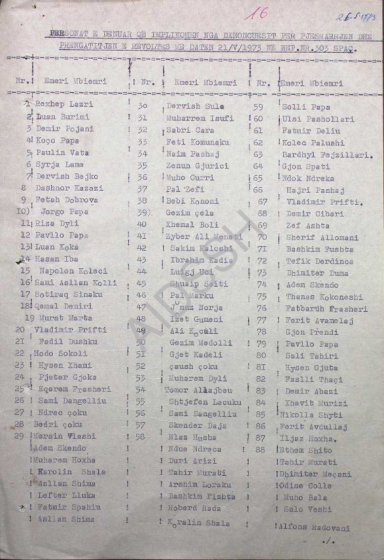
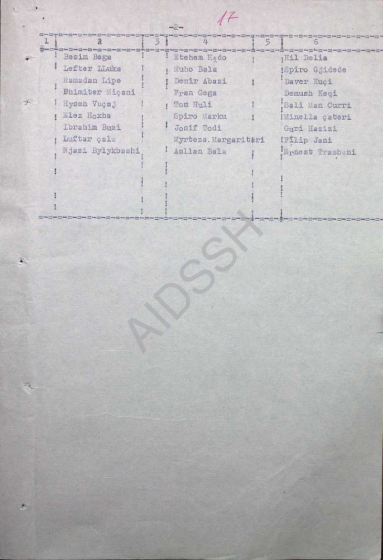
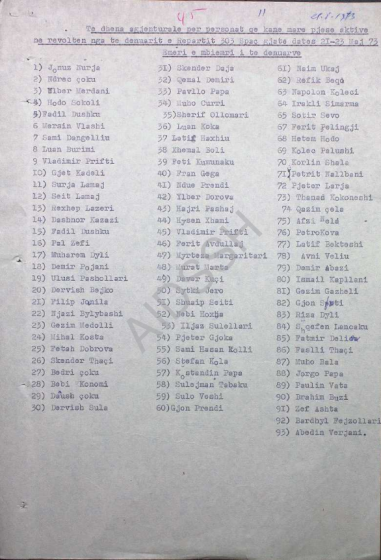
References:
The Authority for Information on the Documents of the former State Security, 'Some conclusions on an extraordinary event in the Spaç re-education section', File 335, 1973
Central State Archive (AQSH), Fund 489, Year 1973, File 38, Page 11, 'Secret Report', 'On a serious extraordinary event caused by the prisoners of section 303 Spaç'. The chronicle is documented by the section commissioner, Shahin Skura, and the commander Haxhi Goro, one month after the event of May 23, 1973.
F. Department of Internal Affairs Mirdita, D. ORV, No. 123, 'Section 303 Spaç
